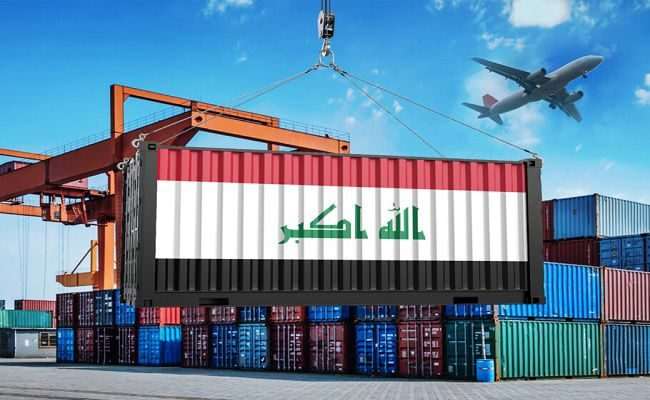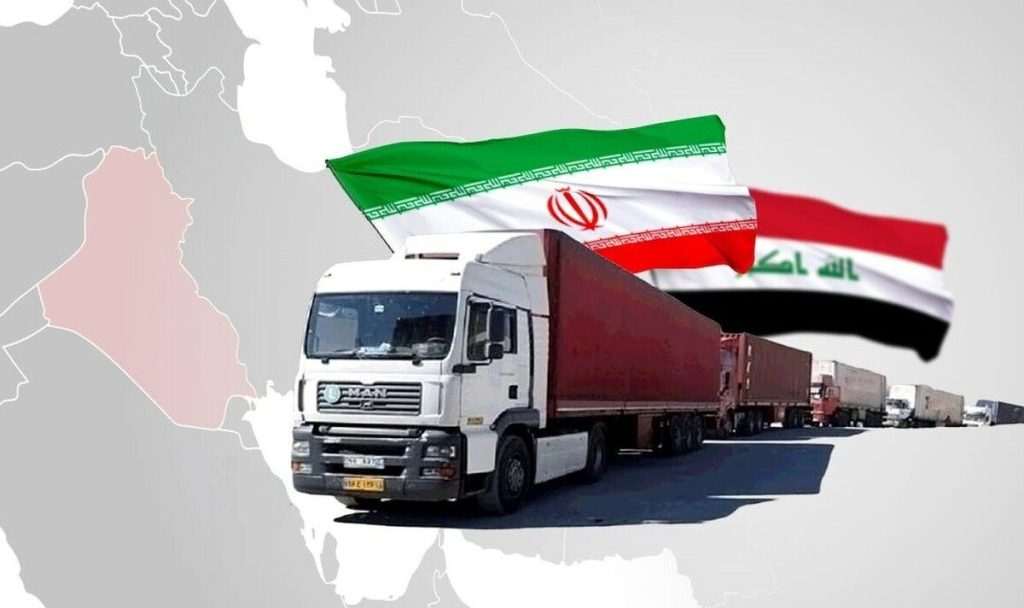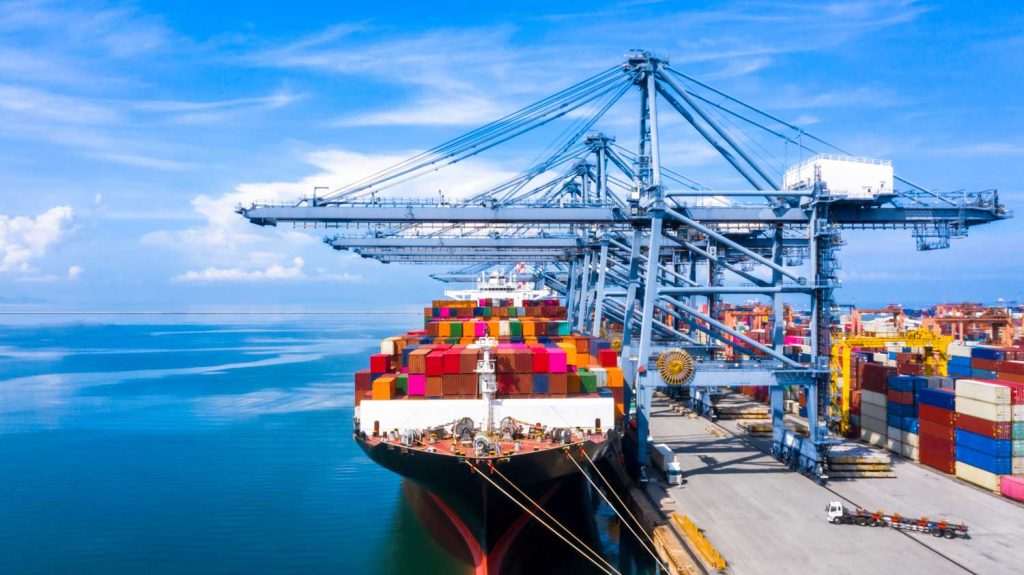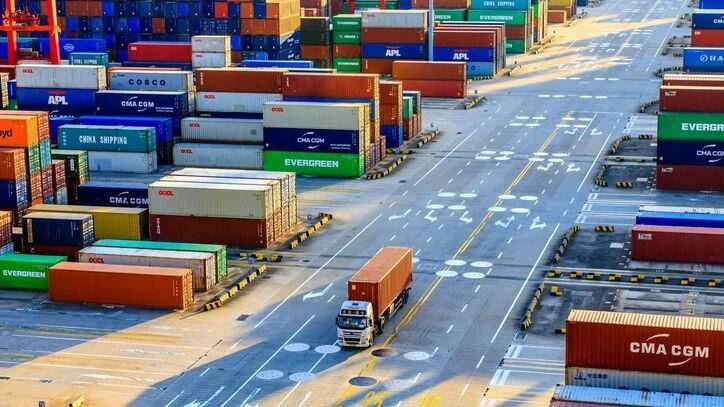Export to Iraq

Expor to Iraq (Opportunities and Challenges)
Exporting to Iraq is one of the profitable and popular opportunities for Iranian traders and merchants. Iran has been very successful in exporting various products to foreign countries, especially its neighbors such as Iraq, Turkey, Afghanistan, Pakistan, the UAE, Qatar, and others. The geographical conditions of Iraq have made it necessary for the country to import essential goods to meet its agricultural needs, which presents an opportunity for Iranian exports.
To start the process of exporting goods to Iraq, you must become familiar with export laws, customs tariffs, identify target customers, and profitable goods for export in order to manage the challenges and complexities of this path. If you are a merchant, trader, or producer of export goods and are interested in establishing trade relations with Iraq, studying this guide is essential for you.
Finding Customers for Export to Iraq
Finding customers and determining the target market are two vital elements in the development of trade relations with Iraq. This process is not only one of the biggest challenges faced by traders but also represents the first step in the path to establishing successful trade relations. Precise and targeted identification of the market and customers can ensure success in this endeavor, while neglecting this stage can quickly lead to failure.
Several Methods for Finding Customers for Export to Iraq:
Trading Companies: Trading companies, which usually have extensive networks of international business relationships, can be valuable resources for identifying and connecting with prominent traders and merchants in various countries. Collaborating with these companies can be one of the easiest and most effective methods for entering new markets and establishing business connections
Searching on Websites and Social Platforms:
With the advancement of technology and widespread access to the internet, the ability to search and find international customers through specialized sites such as Trade Map and Global Source has become available. Additionally, the use of reputable and large Iranian platforms like Baskool, known as one of the most credible sites for wholesale buying and selling and establishing connections between merchants and producers of export goods, can be very helpful in this regard.
Prestigious International Exhibitions:
Participation in prestigious international exhibitions, often recognized as one of the popular and effective methods for finding new customers and expanding business activities, provides unparalleled opportunities for acquaintance with traders and business activists in the field of trade with Iraq.
Google and Other Search Engines:
With easy access to the internet and advanced search tools, exporting to Iraq is easier than ever before. Utilizing tools like Google Maps and other search engines can be very efficient in identifying target customers and new markets.
Iran-Iraq Joint Chamber of Commerce:
Direct communication with the Iran-Iraq Joint Chamber of Commerce can also provide valuable guidance and support in the process of exporting goods to this country, and help traders to operate in this market with greater confidence.

The most profitable goods for export to Iraq
Identifying the most profitable goods for export to Iraq requires a precise understanding of the market and the needs of this country. The goods that have the highest profitability for export to Iraq include:
Agricultural products: such as wheat, rice, lentils, citrus fruits, and potatoes.
Electronics and home appliances: like televisions, refrigerators, washing machines, and other electronic devices.
Building materials: including machinery and related equipment, leather and leather products such as bags and shoes, wood and wooden products like furniture, beds, and wardrobes.
Industrial machinery and equipment: various types of machinery and equipment.
Plastic industry products and textiles: including fabric, clothing, and hats.
Automotive parts and accessories: These products also have high demand.
In addition, the export of foodstuffs such as apples, garlic, dried fruits, and edible nuts is also noteworthy. Keep in mind that Iraq’s economic and political conditions determine the type of goods needed and profitable, and for success in exports, it is necessary to be familiar with Iraq’s customs laws and tariffs.
Goods with the highest export volume to Iraq
A more detailed and comprehensive analysis of the trade situation between Iran and Iraq points out that city gas, as one of the main Iranian export products to Iraq, has played a significant role in strengthening the economic relations between the two countries. This product has been exported at full capacity over the past 9 months, utilizing existing production capacities and aiming to meet Iraq’s increasing energy needs. Additionally, statistics show that over 4 million and 377 thousand tons of non-oil goods were exported to the neighboring country through the customs of Khuzestan province and land and water borders in the first 8 months of this year.
This export trend includes a variety of products such as building materials, clinker, various foodstuffs, vegetables, aquaculture, dairy products, household appliances, and ironware, each of which has had a significant share in the Iraqi market. These goods, due to high demand in the Iraqi market, have brought considerable economic benefits to domestic exporters and producers. Specifically, the export of building materials and clinker, which play a key role in Iraq’s construction and development projects, demonstrates the industrial capabilities of Iran and its impact on the development of the neighboring country’s infrastructure. Moreover, the export of foodstuffs and vegetables, given their high quality and satisfactory health standards, has led to an increase in the level of commercial cooperation and strengthened the friendly ties between the two nations. Ultimately, this not only helps improve the economic status of exporters and producers but also leads to a deepening of diplomatic and economic relations between Iran and Iraq.
Export to Iraq from Iran
According to the report by the Economic Research Deputy of Tehran Chamber of Commerce, in the year 1394 (2015-2016), about %17 of Iran’s total exports were directed towards Iraq. The report emphasizes that consumer goods constituted %28 of the total exported goods to Iraq, which is equivalent to %68 of intermediate goods and %4 of capital goods. Among these, the export of honey to Iraq has also seen significant growth in recent years, indicating Iran’s high capability and potential in producing and exporting this quality product.
Iran’s exports to Iraq can be categorized into the following four general groups:
- Agricultural products: This category includes vegetables and dried fruits, which have attracted the Iraqi market’s attention due to their high quality and variety.
- Building materials: As one of the major producers of building materials in the region, Iran has been able to supply the Iraqi market with products such as cement, bricks, and clinker.
- Various household appliances: With the growth of the household appliance industry in Iran, exports of these goods to Iraq have also increased.
- Foodstuffs: Iran, as one of the important food producers in the region, has been able to supply the Iraqi market with various food items, including dairy products, meat, and processed products.
This categorization demonstrates the diversity and richness of Iran’s export goods basket to Iraq and also indicates the importance of this market for Iranian producers and exporters. The increase in export volume in these sectors has not only led to an upgrade in trade levels between the two countries but has also helped strengthen the economic and diplomatic relations between Iran and Iraq. Ultimately, this can lead to an increase in the level of welfare and sustainable development in both countries.

Export Tariffs to Iraq
A precise and complete understanding of the export tariffs to Iraq is of high importance for Iranian traders and exporters, as these tariffs can affect the profitability and competitiveness of exported goods. Export tariffs to Iraq may vary based on different seasons, types of goods, and border crossing points, which requires careful planning and awareness of the latest legal changes.
For example, the export tariffs for goods exported from Mehran border to Iraq may differ from those applied to the same goods at Parvizkhan border. These differences can be due to geographical location, bilateral agreements, and even the type of goods. Generally, export tariffs for building materials and plastic containers to Iraq may be higher, while tariffs for non-oil materials and plastic products may be lower. These differences in tariffs can be due to different demands in the Iraqi market or incentive policies for the import of certain goods.
Furthermore, export tariffs may be calculated based on the value of the exported goods, which is usually between 10 to 30 percent of the total value of the goods. These rates can significantly affect the overall export costs and the final profit. Therefore, exporters must continuously be familiar with market developments and legal changes in Iraq to make the best use of existing opportunities and prevent potential unforeseen obstacles. Ultimately, consulting with trade and customs experts can provide valuable insights and assist in making informed decisions.
Required Documents and Permits for Exporting to Iraq
To carry out successful exports to Iraq, having sufficient knowledge about the necessary documents and permits is essential. These documents and permits are not only necessary to ensure compliance with customs laws but also help facilitate the export process and prevent potential delays. Here is a broader overview of the steps and documentation required for exporting to Iraq:
- Commercial Card: This card serves as an official permit for international trade activities and must be possessed by the individual or company exporting goods.
- Export Permit: This permit is issued by the competent authorities and is necessary to initiate the export process.
- Goods Valuation: Determining the exact value of the exported goods is important for calculating customs tariffs and other costs.
- Necessary Permits: These permits must be obtained for presentation to Iranian customs and the Ministry of Industry, Mine and Trade.
- Standard Organization Approval: This approval indicates that the goods have been produced in accordance with national and international standards.
- Goods Packaging: Proper packaging is essential to protect the goods during transport and to comply with Iraqi packaging regulations.
- Sales Invoice: Preparation of English and Arabic versions of the sales invoice that provides complete details of the transaction.
- Goods Labeling: Goods labels must be in Arabic or English and provide the necessary information about the goods.
- Inspection Certificate: These certificates must be obtained at the borders and indicate the quality and standards of the exported goods.
- Currency Contracts: These contracts must be concluded to determine the approved price for the exported goods.
- Transport and Insurance Contracts: These contracts are essential for the safe transport and insurance of the exported goods.
- Customs Declaration: This document is required for the official registration of goods in customs and the payment of related tariffs.
- Health and Sanitary Certificate: For food and edible products, these certificates must be obtained and have the Halal seal.
- Manufacturer’s Certificate: This certificate indicates the authenticity and quality of the manufactured goods.
- Certificate of Conformity (COC): This certificate confirms that the goods comply with the standards of Iraq.
- Bill of Lading: This transport document is essential to show the details of the goods’ transport.
- Standard Inspection Approval: These approvals must be obtained from reputable companies such as SGS and BV.
- Test and Inspection Report: These reports indicate the quality and standards of the exported goods.
- Importer’s Request Letter: This letter must be provided by the buyer of the goods in Iraq.
This comprehensive list helps exporters to plan more accurately and prevent potential obstacles in the export process. Furthermore, consulting with trade and customs experts can provide valuable insights and assist in making informed decisions.
Challenges and Issues of Exporting to Iraq
The Iraqi market, with its diverse and growing needs, presents numerous opportunities for Iranian exporters. These opportunities may include access to a large and varied market, the need for quality and cost-effective goods, and the possibility of establishing long-term business relationships. However, to fully capitalize on these opportunities, exporters must be aware of the challenges and obstacles that exist in the path of exporting to this country and consider appropriate solutions to address them.
Precise Marketing and Needs Assessment: Conducting market research and accurately understanding the needs of the target market are among the first steps to success in exports. This includes examining the demand for various goods, consumer preferences, and competition in the market.
Market-Aligned Pricing: Setting an appropriate price for exported goods considering the market conditions of the destination country is of special importance. Pricing should be competitive and ensure profitability for the exporter.
Choosing the Right Packaging: Packaging of goods should be selected in a way that protects the products from potential damage and complies with the required standards of the target market.
Optimal Transportation System: Choosing a suitable transportation method that is cost-effective in terms of both expenses and time is essential for successful exporting.
Familiarity with Customs Regulations: Knowing the customs laws and regulations and obtaining the necessary permits for export, including health and standard certifications, is crucial to prevent potential delays at customs.
Identifying Security and Legal Issues: Paying attention to security issues and the laws of the destination countries and transit routes is important to avoid potential problems during transportation.
Financing and Advance Payments: Ensuring timely receipt of advance payments and appropriate financing to cover the costs of exports and production is necessary to maintain cash flow and profitability.
Considering these factors, exporters should develop comprehensive strategies for risk management, process optimization, and increasing the chances of success in the Iraqi market. Additionally, establishing effective communication with business partners and customers, and collaborating with experienced consultants and experts can facilitate the export process and lead to desirable outcomes. Ultimately, flexibility and readiness to adapt to market changes and regulations can assist exporters in making the best use of available opportunities and turning obstacles into advantages.

Iraqi Customs and Border Regulations for Imports from Iran
Iraq, as one of the main export destinations for Iran, has more than 19 customs terminals, each with its own specific features and conditions. Among these terminals, Zakho and Ibrahim Khalil are of particular importance due to their advanced facilities and more optimal conditions, and they are presented as the main options for exporters.
In Iraqi customs terminals, the quality and standards of products are thoroughly examined. This reflects the high level of supervision and the importance given to international standards. Unfortunately, if the exported goods do not comply with these standards and regulations, they risk being returned to the country of origin, which can lead to financial losses and loss of credibility for exporters.
One of the most important Iraqi customs regulations is the requirement to affix Latin and Arabic labels on product packaging. This law emphasizes that no explanations and information in Persian are accepted on imported goods, and all details related to the goods, including dates and specifications, must be in Arabic and Latin. This is not only necessary for compliance with customs laws but also facilitates the clearance process and provides consumers with access to the necessary information.
Furthermore, the packaging and pricing of goods must also be consistent with the domestic policies and laws of Iraq. This is important not only to ensure the acceptance of goods in the target market but also to maintain the competitiveness of exported goods. Customs tariffs also vary depending on the type of goods and can be determined based on factors such as the value of the goods, volume, weight, and even international trade agreements. These tariffs can have a significant impact on the overall costs of exports and the profitability of businesses.
Finally, to ensure success in the export process to Iraq, exporters must pay close attention to all details and customs regulations and be fully prepared to comply with these rules. This not only helps prevent potential problems but also strengthens sustainable trade relationships and success in international markets.
Iraqi Borders Used for Importing Goods from Iran:
- Tamarchin Customs (Piranshahr City)
- Parvizkhan Customs (Qasr-e Shirin City)
- Khosravi Customs (Qasr-e Shirin City)
- Arvandkenar Customs (Khuzestan City)
- Shalamcheh Customs (Khuzestan City)
- Mehran Customs (Ilam City)
- Bazargan Customs (Azerbaijan Province)
- Bashmaq Customs (Marivan City).
Tata Trading Company’s Goods Export
Considering the challenges and complexities of the export process, Tata Trading Company, leveraging its extensive knowledge and experience in international trade, is ready to offer advisory and operational services to esteemed companies and merchants. At Tata Trading Company, with innovative and optimized solutions, we guarantee that your goods will be exported in the best possible manner, adhering to all international standards.
We are with you at every stage of the export process, including preparing necessary documents, standard packaging, transportation, customs clearance, and ultimately ensuring the goods reach your customer. Utilizing a vast network of business partners around the world, Tata Trading Company is able to provide the best transportation options for your goods and ensure that they reach your customers on time and without any issues.
By trusting Tata Trading Company, you can focus on expanding your business. For more information and free consultation, please contact us.

